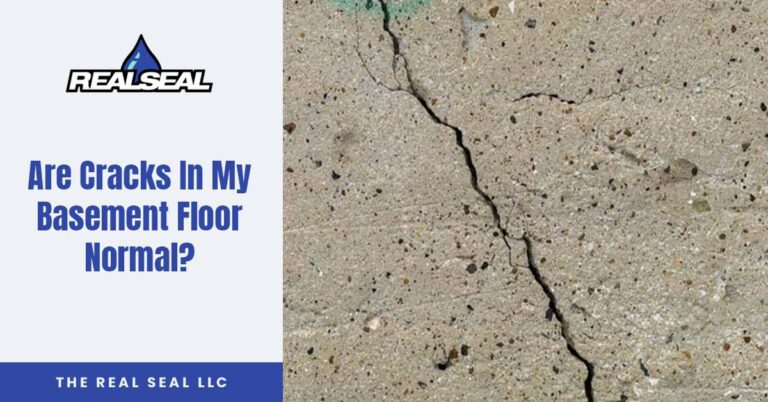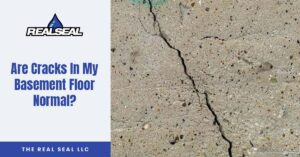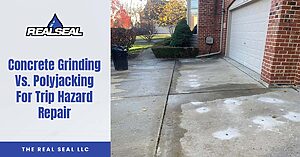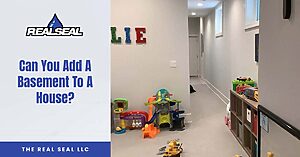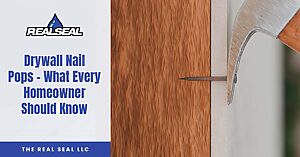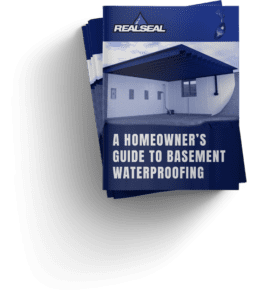Cracks in a basement floor can be scary for new homeowners, and depending on the type of crack, their worry might be justified. Here are a few main reasons cracks in a basement floor might appear in your home:
Normal Foundation Settlement
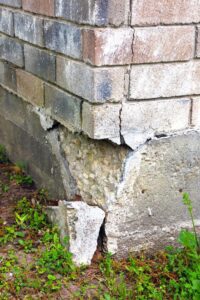
This is far and away the most common reason for basement floor cracks. A large, thin (4” on average) slab of concrete is poured for your basement floor. While sitting on dirt helps give it support, it receives little support laterally from the concrete itself. Let me paint a picture. Start sliding that concrete slab over a cliff. Eventually, that slab will crack and break. The same concept applies here, but over a longer period of time, and less severe. These cracks are normal and found in almost every basement. Many times, builders will “pre-crack” them. If you see your basement floor is split into large squares, this is for you. These cracks do not need to be repaired, unless you have radon Issues. Then a simple bead of caulk is more than enough.
Differential Foundation Settlement (Abnormal Settlement)
This is a different scenario entirely. Now your home is settling. As the home sinks into the ground, it will take the basement floor with it. This will cause cracks along the floor that will correspond to cracks on the foundation wall. Think the Titanic breaking as it sank into the ocean. That crack where the ship split (similar to where your house splits in these cases) is the stress point at which the house pulls apart. These cracks need to be addressed, and more specifically, your foundation needs to be addressed.
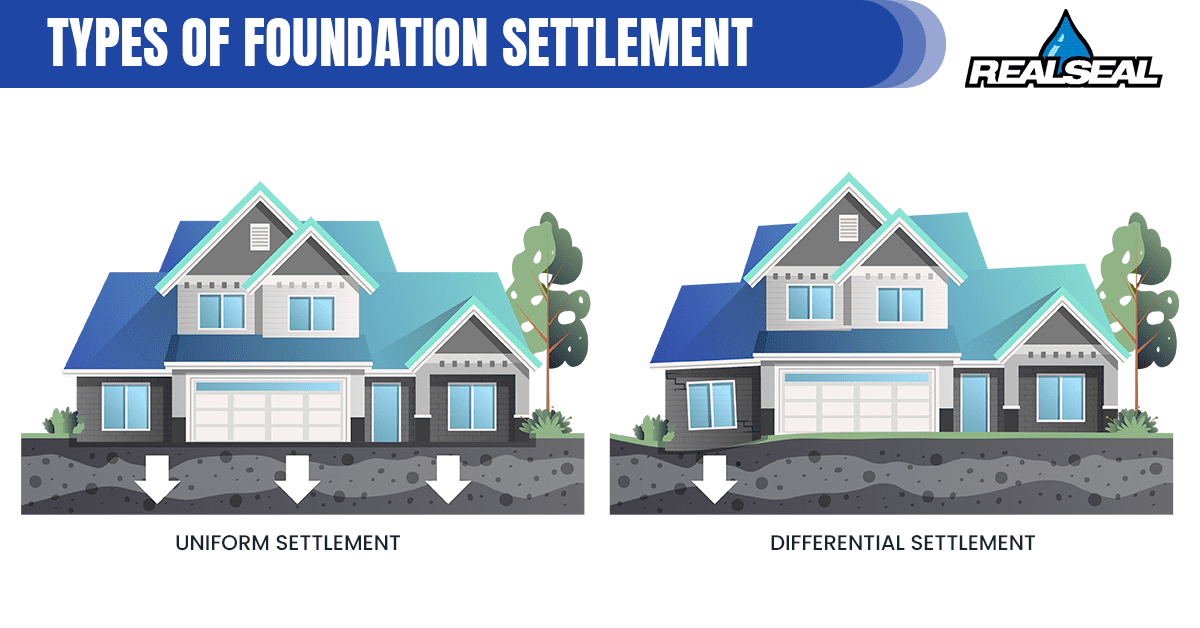
Hydrostatic Pressure
In some extreme cases, water pressure from underneath the floor (due to lack of drain tile, high water table, monsoon rains, etc.) can literally push the floor upward. Not what you want to walk down to in the morning. In these cases, the floor needs to be replaced, and a drain tile system installed.
Tree Roots

This problem is most commonly found on slab-foundations. Trees push your floor up, causing “speed bumps” in your garage or slab. These roots can even lift your foundation! There is only one way to deal with it, cut the roots and replace the floor. You have to stop the roots from growing, otherwise it will just happen again. And yes, we all love that big tree in the yard, but when it is within 10 feet of the home, you are risking the largest investment of your life (your home).
Stitching Them Together
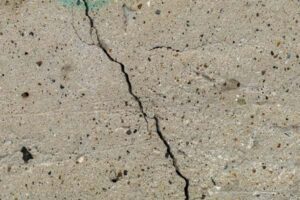
Our approach to repairing cracks in a basement floor is to fix the root problem. That might be foundation settlement, invasive tree roots, or hydrostatic pressure. If the root problem isn’t fixed, any repair will be, at best, temporary.
Once the root problem has been handled, we can “stitch” the crack together much the same way that we stitch together a cut on our bodies. Instead of silk, catgut, or synthetic materials, we use Carbon Fiber Grid Stitches (Carbon Fiber Staples for Foundation Crack Repairs). These are stitches for your foundation and will help reinforce the crack repair. They even look like stitches!
Main thing is to first determine why you have cracking in your floor. “Suave” salesmen will come in and convince you the sky is falling and your whole world is about to fall apart. Most of the time we come in after these “Glengarry Glen Ross” sales reps and find that the crack is from normal settlement and is not an issue. Do not let sales reps scare you. Get another opinion. We pride ourselves on our honesty, just saying.
Thanks for reading, and as always:
“Not Everything’s Better When Wet”
